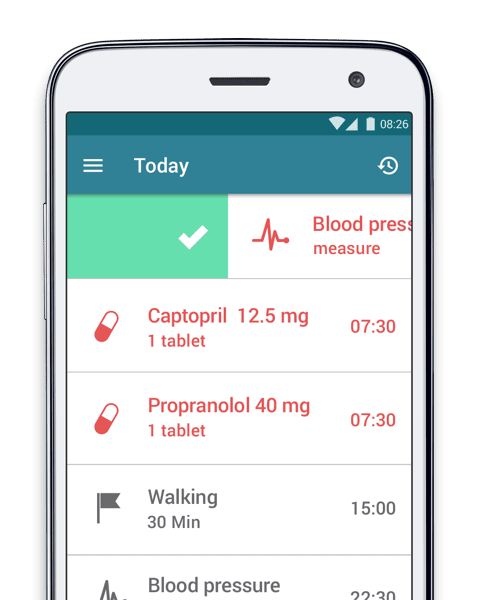They call it the 'silent killer': High blood pressure or Hypertension, is an incredibly common, yet often hidden, chronic disease that can have severe consequences. More than 1 in 4 adults in the UK have high blood pressure, though many won’t realize it. Regular check-ups are the best way to catch hypertension, as the only way to find out if you have high blood pressure is to have your blood pressure checked by a Health Care Professional. Persistently high blood pressure dramatically increases the chances of several life-threatening diseases such as heart disease, kidney disease, and vascular dementia, in addition to heart attacks and strokes.
It’s not clear exactly what causes high blood pressure, but certain factors increase the risk. There is an increased risk if you are over the age of 65, are overweight, or have a diet high in salt and without enough fresh fruit and vegetables. Additionally, drinking excessive alcohol or caffeine, and not getting enough exercise or sleep, also increases the risk of high blood pressure. Together with Blood Pressure UK, we’ve created an infographic that provides information on high blood pressure and helpful tips on managing hypertension, lifestyle changes that can lower blood pressure, apps that can help manage treatment.

When is Blood pressure considered too high?
Blood pressure is the force of your blood pushing against the sides of your blood vessels (veins, arteries). Every blood pressure reading consists of two numbers. The first or top number is systolic blood pressure. It is the highest level your blood pressure reaches when your heart beats. The second or bottom number is diastolic blood pressure. It is the lowest level your blood pressure reaches when your heart beats. Both are measured in millimeters of mercury (mmHg). In general, ideal blood pressure is considered between 90/60mmHg and 120/80mmHg, high blood pressure is considered to be 140/90mmHg or higher. High blood pressure is diagnosed if either number hits this threshold.
I have been diagnosed with Hypertension. What now?
While the risks of untreated hypertension are high, there are a number of things that can be done to lower blood pressure. In addition to medications that lower blood pressure like ACE Inhibitors and beta blockers, lifestyle changes can have a dramatic effect. Reduce the amount of salt in the diet, and strive to eat a healthy diet full of fruit and vegetables. Cutting back on alcohol and caffeine, exercising regularly, getting enough sleep, are all lifestyle changes that help lower blood pressure. The following apps and resources can help with adjusting to a new lifestyle, and managing treatment:
Keep your heart in shape
Cardiovascular exercise can strengthen the heart and lower blood pressure. Just 30 minutes of cycling, walking, or light yoga can lower blood pressure. In addition to exercise, relaxation exercises and meditation with a focus on breathing technique help to reduce stress, which can exacerbate high blood pressure. Apps like Sworkit can help you create your own fitness plan and motivate you to workout. Consult your physician before starting a new training program, to keep the intensity appropriate to your health condition.
Don't forget to take your medication
Medicine can help lower your blood pressure - if you take it properly. Hypertension apps like MyTherapy (for Android and iOS) can help: the App reminds you of your ACE Inhibitors like enapril and lisinopril, and Beta blockers atenolol and bisoprolol. Additionally, MyTherapy reminds you to take your blood pressure at home. Record your blood pressure readings and exercise in the journal, keeping track of the values and your progress. MyTherapy adheres to strict data protection and confidentiality laws, so your data is safe, and never shared with third parties.
Stay on top of your health
A healthy diet keeps blood pressure in check. Look for a balanced diet with enough fruit and vegetables. If you are suffering from a food intolerance, you should avoid the food that is incompatible with you, e.g. soy or nuts. Get enough sleep, try to get at least six hours of sleep a night, and cut down on your caffeine consumption. Lose weight if you are obese or overweight. Get rid of bad habits: If you drink excessive alcohol, limit your drinking. With the right medical treatment and a proactive attitude towards managing your blood pressure, you can lower your blood pressure and reduce your risk for heart attack and stroke.
Take a look at some of the other posts on the MyTherapy blog:


